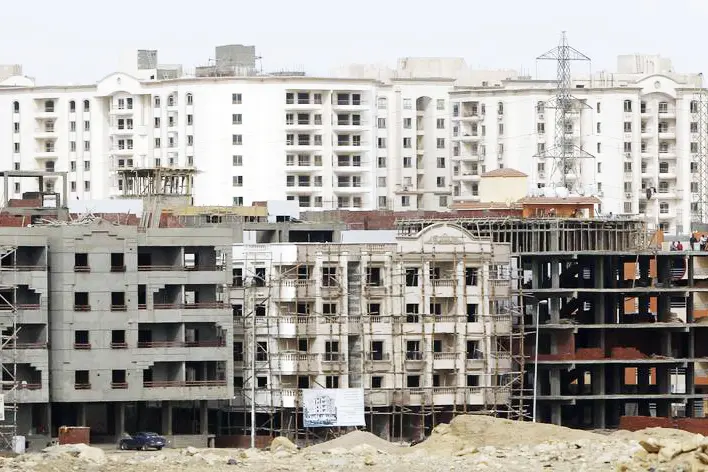PHOTO
Egyptian investment in real estate has proven the safest choice yet
Apartments in the Greater Cairo area witnessed an average annual increase in price of 27 per cent between 2013 and 2015, according to Mansour Ahmed, director of Colliers UAE, a commercial real estate services provider, giving an idea of the extent to which investment in real estate in some locations is paying off, Niveen Wahish reports.
Ahmed was addressing the Real Estate Summit organised by Cityscape Egypt this week and was reporting figures that commentators have not found surprising given that many Egyptians view real estate as the ultimate secure investment.
Even during times of slowdown, for example following the 25 January Revolution, real estate never lost its value. It stabilised for a while before taking off again more recently, with Wael Ziyada, head of research at investment house EFG Hermes Egypt, telling participants at this week's summit that real estate was a safe investment, especially at times of falling currency values.
"We have seen a 700 per cent increase in our revenues in recent years," Nabil Amasha, chief commercial officer at Emaar Misr, a real estate agency, said. He told the summit audience that his company had not quit the Egyptian market after the revolution because it saw potential and this had now paid off.
With a population of 90 million, Ahmed believes that by 2020 Egypt will need another six million residential units. "This means an annual average supply of between 90,000 and 100,000 units," he said, adding that current trends indicated a "significant" shortage of over 500,000 units by 2020.
Many of the available units are being targeted at the high-end segment of society which represents around 10 per cent of the market. More units are needed that are affordable to the middle-income segments, Ahmed said.
The gap in affordable housing in Egypt was 3.5 million in 2011, according to Craig Plumb, head of research at MENA Jones Lang Lasalle in the UAE, a property services company. This has further widened today, he said, adding that "the challenge for developers is to turn that around."
The cost of land tops the list of obstacles to making this happen, however, with the prices of land suitable for residential building having become "exorbitant." Land has come to cost between 40 to 60 per cent of unit prices, said Fathallah Fawzy, former chairman of Al-Mostakbal City, a new development in New Cairo, whereas "it should not exceed 25 per cent," he said.
Land prices could be overcome through partnerships between the government and the private sector to build more middle-income and low-income housing, Ziyada said.
He added that growth in the real estate sector in Greater Cairo and the North Coast had surpassed 20 per cent, commenting that this must now include areas for lower-income segments of society. Ziyada suggested that the government partner with the private sector, rather than simply selling the land to investors through a bidding process which "only leads to higher prices for the consumer."
But partnering with the government is the last thing Hussein Sabbour, chairman of Al-Ahly for Real Estate Development, a developer, would recommend because of red tape and bureaucracy. Sabbour criticised the government monopoly on land allocation, adding that things had been made worse by a government authority overseeing land allocation.
This would need to end, said Ayman Ismail, chairman of DMG Mountain View, an engineering and contracting company. "There should be one authority and it should be under the presidency in order to guarantee its success," he said.
Real estate developers addressing the summit agreed that the real estate sector in Egypt was a good investment, however. According to Sabbour, no investor would make a loss in this sector. "Real estate in Egypt is the cheapest in the Arab region. It is just incomes that are low," he said.
© Al Ahram Weekly 2015





















